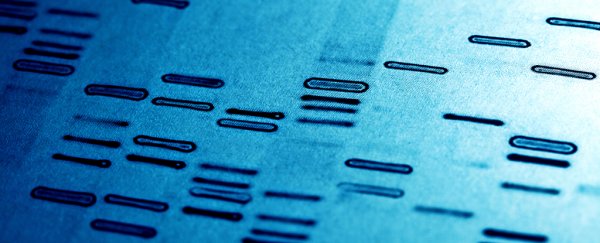Those living in the US can now send DNA samples directly to a laboratory and have them check for genes responsible for a number of diseases.
The Food and Drug Administration (FDA) has just given the thumbs-up for the DNA sequencing company 23andMe to market their Personal Genome Service Genetic Health Risk screen, which tests for markers associated with conditions including Parkinson's, celiac, and late onset Alzheimer's disease.
Genetic screening is a double edged sword, one the FDA has been explicitly critical of in the past in its warning 23andMe to hold off on marketing their Personal Genome Service until it received the right clearance.
At the time, the company had been providing customers with assessments for more than 250 diseases, along with health advice that the FDA determined was a little premature given the limited state of the scientific evidence and risked being misinterpreted without a doctor's assistance.
The company complied, modifying how it reported its screens back to customers by framing them as carrier risks rather than explaining the marker as a personal risk of disease to the owner of the DNA.
That was back in 2013. Four years later, research has provided additional data to support links between a number of debilitating conditions and specific genetic sequences, enough to convince the FDA to change its tune a little.
"Consumers can now have direct access to certain genetic risk information," said director of the FDA's Center for Devices and Radiological Health, Jeffrey Shuren.
There are 10 diseases which the FDA have determined to have enough evidence linking them to certain variations in our DNA;
- Parkinson's disease
- Late-onset Alzheimer's disease
- Celiac disease
- Alpha-1 antitrypsin deficiency, linked with lung and liver disease
- Early-onset primary dystonia, a disorder involving involuntary muscle contractions
- Factor XI deficiency, a blood clotting disorder
- Gaucher disease type 1, a disorder characterised by bruising and anaemia
- Glucose-6-Phosphate Dehydrogenase deficiency, a red blood cell condition
- Hereditary hemochromatosis, an iron overload disorder
- Hereditary thrombophilia, a blood clot disorder
Purchasing an Ancestry and Health kit from 23andMe will enable customers to automatically test for eight of the diseases; Parkinson's and Alzheimer's disease will require customers to specifically ask for those tests to be added.
Being able to mail off a vial of saliva and get back information relevant to your health and your future family could help weigh the risks behind certain decisions more accurately.
"But it is important that people understand that genetic risk is just one piece of the bigger puzzle, it does not mean they will or won't ultimately develop a disease," Shuren cautions.
So while consumers can now be more confident that the tests are accurate, they still come with a warning to understand the complexity of genetics and disease.
Being predisposed to a disease isn't the same as a diagnosis, raising concerns that without an expert intervening individuals could still read too much into the results, causing distress or confusion.
Genetic screening for diseases including cancer have been getting cheaper and more consumer focussed in recent years, although most – like another recent start-up, the US cancer-screening company Color – have still recommended going through a doctor.
While US laws like those enforced by the Genetic Information Nondiscrimination Act of 2008 are intended to prevent genetic screens from being interpreted as an existing conditions by insurance companies and used to deny coverage, it's also difficult to say how effective the act has been, and will be in the future.
In any case, the FDA decision is a sign of things to come.
"By establishing special controls and eventually, a premarket review exemption, the FDA can provide a streamlined, flexible approach for tests using similar technologies to enter the market while the agency continues to help ensure that they provide accurate and reproducible results," says Shuren.
If you're curious and have a couple hundred dollars spare, order yourself a kit and get spitting.
